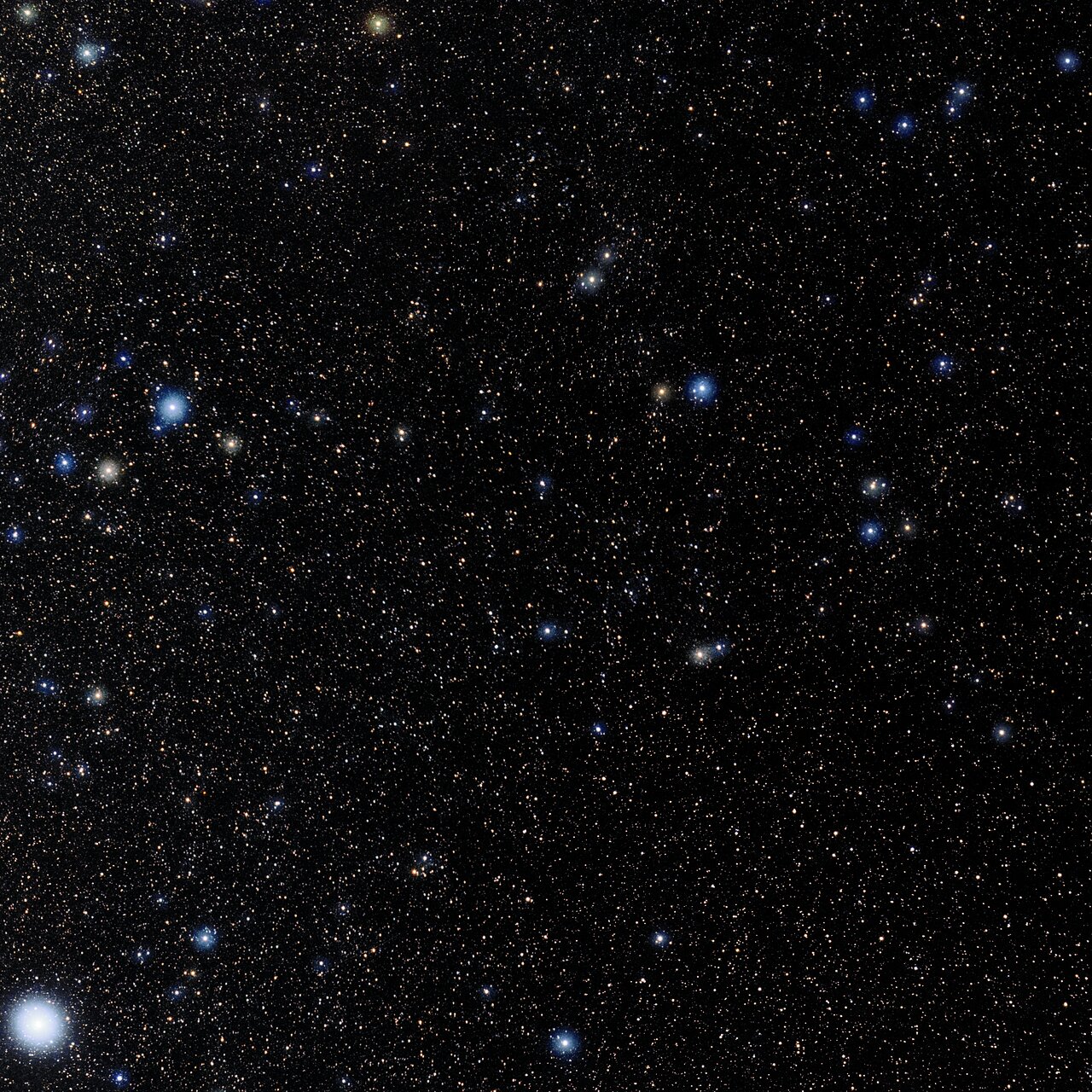Caelum
Origin
This constellation was invented in the 1750s by the astronomer Nicholas Louis de Lacaille. The common translation of Caelum from Latin to English is ‘heaven’ but in this instance it means ‘The Chisel’, a tool that is used to carve stone. There is no mythological story relating to The Chisel.
Bright Stars
The brightest star in Caelum, Alpha Caeli, is magnitude 4.52, and the second-brightest is Gamma Caeli, at magnitude 4.62.


 Photo of the constellation Caelum produced by NOIRLab in collaboration with Eckhard Slawik, a German astrophotographer.
The annotations are from a standardized set of 88 western IAU constellations and stick figures from Sky & Telescope. Please find here a non-annotated version of the image.
Photo of the constellation Caelum produced by NOIRLab in collaboration with Eckhard Slawik, a German astrophotographer.
The annotations are from a standardized set of 88 western IAU constellations and stick figures from Sky & Telescope. Please find here a non-annotated version of the image.
Credit: E. Slawik/NOIRLab/NSF/AURA/M. Zamani
Notable Objects
There are very few naked-eye or telescope objects in Caelum other than the stars themselves; most of the stars in it are not even visible to the naked eye in areas with even a small amount of light pollution.



